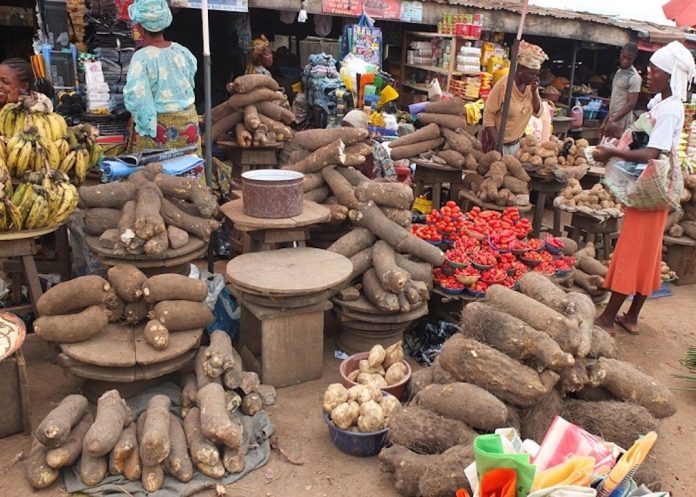Africa’s premier commodities player, AFEX, has unveiled its 2023 Crop Production Report, forecasting a price surge across all commodities due to a general decline in production coupled with rising demand for processing and exports.
The report, which was unveiled during a hybrid event hosted at AFEX in Abuja on Thursday delivers insights on six key commodities including, maize, paddy rice, soybean, sorghum, cocoa, and sesame.
It leveraged farmer surveys and transaction-level data measurement to provide invaluable insights into crop production, price trends, and market dynamics.
According to the report, paddy rice which faced the most notable upswing in 2022/2023, partly due to increased flooding and the India rice ban that contributed to an increase of 34percet and a baseline pricing of NGN353,000/mt, is expected to rise to NGN400,000/mt and projected to stabilize at NGN480,000 to NGN500,000/mt by Q3 2023.
Also, the report highlights food insecurity and inflation as a major challenge for Nigeria, with a 5.7million metric ton shortage across human consumption and agro-processing, and a historic high food inflation rate of 30.64percent.
Nigeria’s Global Hunger Index score currently remains alarmingly high, ranking 109th out of 125 countries.
The report therefore warns that as food prices continue to rise, as witnessed in the 2023 season, food security challenges will continue to persist, further reducing the continent’s capacity to achieve Zero hunger by 2030.
The crop production report further highlights a significant improvement in farmland accessibility for cultivation in critical areas, accompanied by a notable uptick in the use of enhanced inputs like high-yielding seeds and fertilizers.
This shift contributed to a considerable forecasted increase in maize and paddy rice production for the current season.
However, the report underscores the persisting challenge of limited input lending, constituting only 6.16percent of bank lending in 2022.
According to AFEX, stakeholders in the commodities market can leverage the data provided in the report for informed trading decisions in the upcoming season.
At the launch event, AFEX Nigeria’s President/CEO, Akinyinka Akintunde, emphasized the need for increased investment in the agriculture sector.
He stated, “This year, we nearly doubled our sample size from 20,677 to 39,091 to get an accurate reflection of the current state of Agriculture production, and we found that we must take extra care to prioritize improvement in agricultural productivity for these farmers, and this is hinged on investing in the sector, and solving for infrastructure, logistics, and technology gaps.
“This transformation will substantially enhance food self-sufficiency and increase our ability to meet the nutritional and food security needs of a growing population while also bolstering the economy through foreign exchange earnings.”
Recognizing the persistent challenge of insufficient data in African agriculture, the report according to AFEX boss, aims to bridge the gap by providing a reliable data bank to promote market education, enable transparent pricing, and empower both capital market operators and farmers to make equitable trading decisions.


